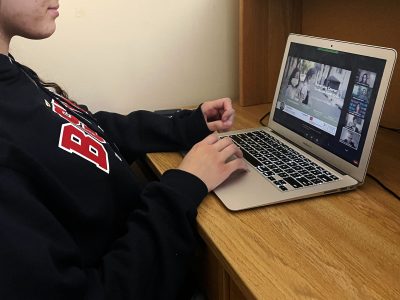Mental health needs to be addressed in the classroom, experts said Tuesday at “Reversing Course: The Mental Health Crisis,” the third event in a series of collaborations between Ivy Street School and Boston University Wheelock College of Education and Human Development.

The event focused on how mental health has been increasingly impacting students and the changes available to remedy this.
“Our kids are struggling right now,” Brandon Cardet-Hernandez, the executive director of Ivy Street School, a school in Brookline that provides residential and educational treatment to adolescents with neurological difficulties, said. “They need adults to show up in a really innovative and thoughtful way.”
One way is by bringing in social emotional development and incorporating it into the classrooms and academics, one of the panelists, LaShawn Robinson, the deputy chancellor of school climate and wellness for the New York City Department of Education, said.
Educators should be trained to identify warning signs and understand what anxiety, trauma and depression can look like in the classroom, then be able to refer students to services and connect them with family, another panelist, Jennifer Greif Green, an associate professor in the special education program at Wheelock, said.
“Adults have more trouble identifying anxiety and depression … problems that are turned inwardly, than identifying students who are acting out in their classroom or expressing distress in a more obvious or outward way,” Green said.
As young adults, college students have more freedom and options in the kinds of services they can seek out compared to students in K-12 public schools, but can struggle more with connecting to those services due to accessibility issues, Green said.
BU Student Government’s Mental Health Committee (MHC) is currently trying to integrate trauma-informed teaching into BU’s curriculum, Savannah Majarwitz, one of the co-chairs for the committee, said. One way they are working on this is by trying to get professors to incorporate content warnings before they discuss graphic material.
“We don’t want to just stop there, with just saying ‘trigger warning,’” Majarwitz, a senior in the College of Arts and Sciences, said. “We want to make sure throughout the class, professors can offer resources and have a conversation, like, ‘Why is this so harmful?’ Obviously, for students who are comfortable engaging.”
The BU Student Government’s MHC is currently working on a mental health resource guide for students, Majarwitz said. Examples of resources they are planning to include are links to therapy organizations, referral systems and guides on how to write an email to a therapist or organization, she said.
“It can be really, really daunting to make that first step,” Majarwitz said. “And so we’re hoping that this resource will be used by students and will help alleviate that burden.”
Listening directly to students and families and being responsive to their needs in real time is important, Robinson said.
“You will have some communities where a community school strategy is the best strategy, some communities where you may need to think about a social worker, and sometimes, it’s something that we did not even consider.” Robinson said. “So how do we lean in and listen to those that we are serving? Because they know what they need in this moment, especially.”
Majarwitz said there are mixed reactions from professors in response to students’ mental health concerns.
“It’s a bit difficult because professors themselves also are going through the pandemic, just like students are,” Majarwitz said. “As students you would want to assume that professors have that shared experience with you and can understand when you’re struggling, but I do think there is a bit of that gap.”
Robinson said the NYC Department of Education started by helping educators with their mental health and wellness first.
“If we didn’t do the job in terms of taking care of our educators and making sure that they could get their mental health and wellness needs met … they would not be able to take care of our children,” Robinson said.
Lesli Suggs, another panelist and the president and CEO of The Home for Little Wanderers, a child welfare agency in Massachusetts, said it’s important for educators to reinvigorate routines and activities again.
“One of the things I talk about with my staff is … I say, ‘Go drink water, go take a walk outside … remember to eat, eat good food, and just do those things to take care of yourself,’ those normal kinds of [activities] that create the routine that we need and provides us stability,” Suggs said.
The “burden” must never be placed on a teacher, nurse or mental health professional alone, and they should support each other, Robinson and Suggs said.
“We cannot do any of this work in isolation,” Suggs said. “We all need each other.”

















































































































